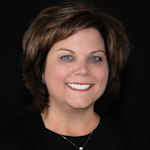As one of the leaders of my team, I have learned that there are three very simple words that can move any team to the next level: expectation, accountability, and follow-up. Sounds simple enough, right? It is simple until you think about what it really means to put those three words into action while staying true to the process of setting clear expectations, holding your team members accountable, holding one another accountable, and following up with everyone. I have learned that it can work, it does work, and you will thank yourself later if you implement this in your leadership role.
Have you ever heard a team member say, “She never does this,” or “They do not do this”? I have heard this before in my own office and it usually marks the start of conflict or resentment among team members. Often, we forget that we never took the time to explain what we needed or why we needed it. We just assume team members understand, can read our minds, or should know what to do. When we fail to communicate, we set our team up for failure. These three words can be used in your role as a leader, and when you teach your team to put this into action, you set everyone up to succeed.
Expectation
Setting expectations for your team is one of the most important responsibilities we have as office managers/practice administrators. We must set expectations for our team, our employees, new hires, and doctors. Our employees do not know what they do not know unless we take the time to set expectations and share with them what we are trying to accomplish. When clear expectations are set for our team members, it removes any confusion, blame, or hurt within the team. Everyone wants to succeed in their day-in and day-out responsibilities as an individual and as a teammate, for the success of the practice.
Accountability
Once expectations have been set for your team, you must be willing to hold your team accountable. This is a big one! It wasn’t until I read QBQ! The Question Behind the Question by John G. Miller that I realized how important accountability is in my personal and professional life.1 QBQ is all about accountability—personal accountability, that is. I would encourage you and your team to read this book together. Teams must first learn that we are all accountable for ourselves first. Once they learn this, it will be easier for each of us to have someone else hold us accountable for what is expected. I have found that peer-to-peer accountability is awesome and awkward for your team all at the same time. It’s a process, but when your team gives each other permission to hold one another accountable, you begin to have a team that trusts and appreciates each other. When accountability is solid within the team, everyone succeeds, and in return the practice is stronger and more successful.
Follow-up
As part of the process of holding your team accountable, you will need to follow-up with them. It's important to reach out to them and let them know it’s okay for them to give you feedback. The follow-up allows for employees to get involved and share experiences and/or new ideas. You don’t want to let too much time pass when following up. When your follow-up happens in a timely manner, it creates immediate value to what you are all working to achieve.
By implementing three simple words—expectation, accountability, and follow-up—into your role as office manager/practice administrator, you will set yourself and your team up for success. As the popular saying goes, “Failing to prepare is preparing to fail.”
REFERENCE
- Miller JG. QBQ! The Question Behind the Question: Practicing Personal Accountability in Work and in Life. TarcherPerigee; 2004.
Teresa Spence, MAADOM, has been in dentistry for 31 years, most of which she has spent with Amelia Dental Group in Fernandina Beach, Florida. She has held the position of practice administrator for the past 11 years. Teresa is a lifetime member of the American Association of Dental Office Management. She is also president of the AADOM Northeast Florida Chapter. She became a fellow of the American Association of Dental Office Managers in 2012, achieved her AADOM Mastership in 2020, and is a two-time recipient of the Practice Administrator of Distinction award.







